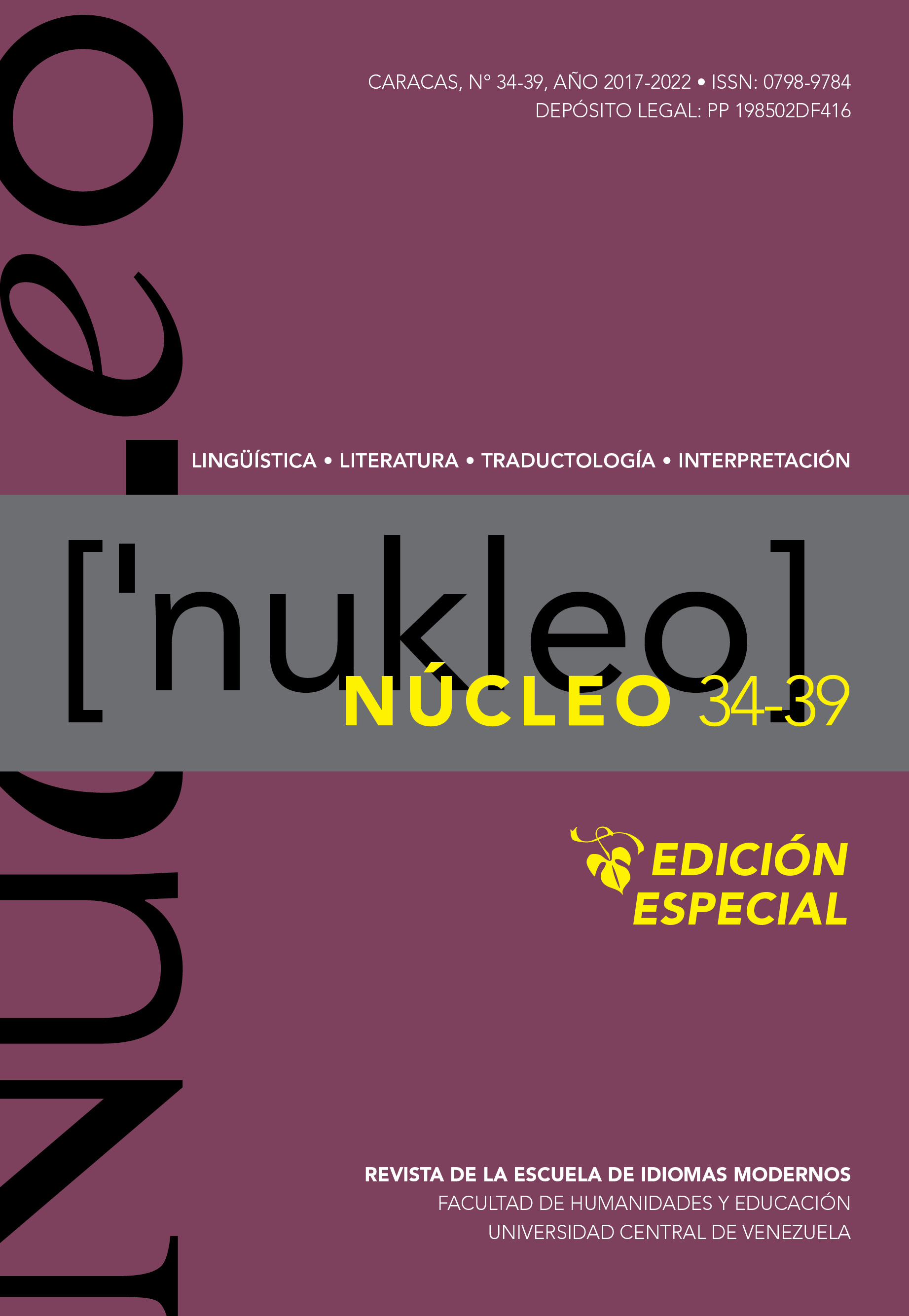REEVALUACIÓN DE LA HISTORIA DEL CARIBE: REFLEXIONES A PARTIR DE GLISSANT, CÉSAIRE Y WALCOTT
Resumen
Para los autores martiniqueses Edouard Glissant, Aimé Césaire y el santalucense Derek Walcott la historia del Caribe parte de un crimen: la esclavitud. Por lo tanto, la historia está marcada por el uso comercial que el colonialismo hizo de las Antillas. ¿Cómo construir una historia propia sobre este hecho? ¿Deben los caribeños valorar su propia historia desde un canon diferente al eurocéntrico? ¿Carece el Caribe de los grandes logros civilizatorios (monumentos, personajes históricos universales) que la historiografía occidental exige? ¿Qué papel tiene la literatura en estos cuestionamientos y en la construcción y el despertar de la conciencia histórica caribeña? El objetivo del siguiente artículo es identificar cómo nuestros autores responden a estas interrogantes a través de las obras que analizaremos: El discurso antillano (1981) de Glissant, el poema largo titulado Cuaderno de un retorno al país natal (1939) de Césaire y finalmente de Dereck Walcott su poema El mar es historia (1987) y su discurso de aceptación del Premio Nobel “Las Antillas: fragmentos de una memoria épica” (1992).
Palabras clave: historia, cultura, naturaleza, esclavitud, Caribe.
Reassessing the History of the Caribbean: Reflections on Glissant, Césaire and Walcott
Abstract
For Martinican authors Edouard Glissant, Aimé Césaire, and Saint Lucian Derek Walcott, the history of the Caribbean begins with a crime: slavery. Therefore, the history is marked by the commercial exploitation that colonialism subjected the Antilles to. How can they construct their own history around this fact? Should Caribbean people value their own history from a non-Eurocentric canon? Does the Caribbean lack the great civilizational achievements (monuments, universal historical figures) that Western historiography demands? What role does literature play in addressing these questions and in the construction and awakening of Caribbean historical consciousness? The objective of the following article is to identify how our authors respond to these questions through the works we will analyze: Glissant’s Caribbean Discourse (1981), Césaire’s long poem titled Notebook of a Return to the Native Land (1939) and finally, Derek Walcott’s poem The Sea is History (1987) and his Nobel Prize acceptance speech: “The Antilles: Fragments of Epic Memory” (1992).
Keywords: history, culture, nature, slavery, Caribbean.
Réévaluation de l’histoire de la Caraïbe : réflexions à partir de Glissant, Césaire et Walcott
Résumé
Pour les auteurs martiniquais Edouard Glissant et Aimé Césaire, et l’écrivain saint-lucien Derek Walcott, l’histoire de la Caraïbe démarre par un crime : l’esclavage. Cette histoire est donc marquée par l’usage commercial des Antilles sous le colonialisme. Comment écrire une histoire propre basée sur ce fait ? Les Caribéens doivent-ils mettre en valeur leur histoire tout en partant d’un canon autre que l’eurocentrique ? La Caraïbe manque-t-elle de grandes réalisations civilisatrices (monuments, personnages historiques universels) exigées par l’historiographie occidentale ? Quel est le rôle de la littérature dans ces questionnements et dans la construction et le réveil de la conscience historique caribéenne ? Le but de cet article est d’identifier la manière dont ces auteurs donnent réponse à ces interrogations par le biais des œuvres analysées : Le discours antillais (1981), de Glissant ; le long poème intitulé Cahier d’un retour au pays natal (1939), de Césaire ; et finalement le poème The Sea is History (1987), de Dereck Walcott, ainsi que son discours d’acceptation du Prix Nobel The Antilles : Fragments of Epic Memory (1992).
Mots clés : histoire, culture, nature, esclavage, Caraïbe.
Reavaliação da história do Caribe: reflexões sobre Glissant, Césaire e Walcott
Resumo
Para os autores martinicanos Edouard Glissant, Aimé Césaire e o são-luciano Derek Walcott, a história do Caribe começa com um crime: a escravidão. Como podemos construir nossa própria história com base nesse fato? O povo caribenho deve valorizar sua própria história a partir de um cânone diferente do eurocêntrico? O Caribe carece das grandes realizações civilizacionais (monumentos, figuras históricas universais) que a historiografia ocidental exige? Que papel desempenha a literatura nessas questões e na construção e no despertar da consciência histórica caribenha? O objetivo do artigo a seguir é identificar como nossos autores respondem a essas perguntas por meio das obras que serão analisadas: Le discours antillais (1981), de Glissant, o longo poema de Césaire intitulado Cahier d’un retour au pays natal (1939) e, finalmente, o poema The Sea is History (1987), de Dereck Walcott, e seu discurso de aceitação do Prêmio Nobel The West Indies: Fragments of an Epic Memory (1992).
Palavras-chave: história, cultura, natureza, escravidão, Caribe.

